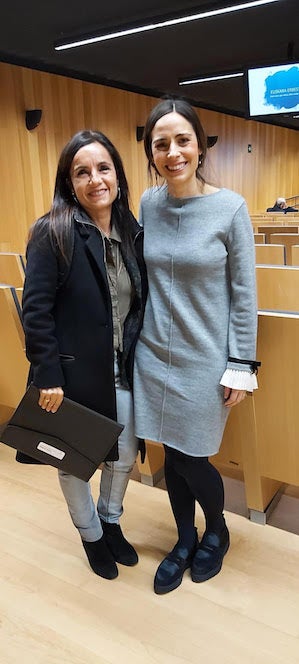Ziortza Gandarias Beldarrain presents at international humanities conference

Ziortza Gandarias Beldarrain, an assistant professor in the Department of World Languages, attended the 16th International Conference of Exilioa eta Humanitateak (Exile and Humanities) in Donostia-San Sebastián in the Basque Country in November.
The conference was organized and sponsored by many institutions in the Basque Country, the United States and Spain: Hamaika Bide Elkartea; Center for Basque Studies (University of Nevada Reno); University of the Basque Country; University of Deusto; The Basque government; The Gipuzkoa Provincial Council; San Sebastián City Hall, Gogora; and the Spanish government.
The conference’s main focus was to analyze and debate the pathway made in exile by Basque culture during the 40 years of Franco Dictatorship (1939-1975). This conference brought together academics, philosophers, writers and those who had experienced exile.
Gandarias Beldarrain presented a paper titled “Jokin Zaitegi: Erbestetik Euskal Komunitate Irudikatua Eraikitzen” (Jokin Zaitegi: Building the Basque Imagined Community from the Exile). The paper examined how Zaitegi, an exiled Jesuit priest, was able to develop a network of fellow Basque intellectuals to save and rebuild the defeated Basque Country through the Basque language. In order to pursue this goal, Zaitegi created Euzko-Gogoa (Basque-Will), the first magazine written entirely in the Basque language, published in Guatemala between 1950-1960.
This magazine became a platform for building an imagined community that could be a reference for the future Basque nation. Gandarias focused on the importance of place in the case of Euzko-Gogoa Guatemala, showing how it became the archetype of freedom, a place where the Basque culture found space to grow and build an imagined community, and where exile became a fundamental pillar for the modernization and development of Basque culture and literature.